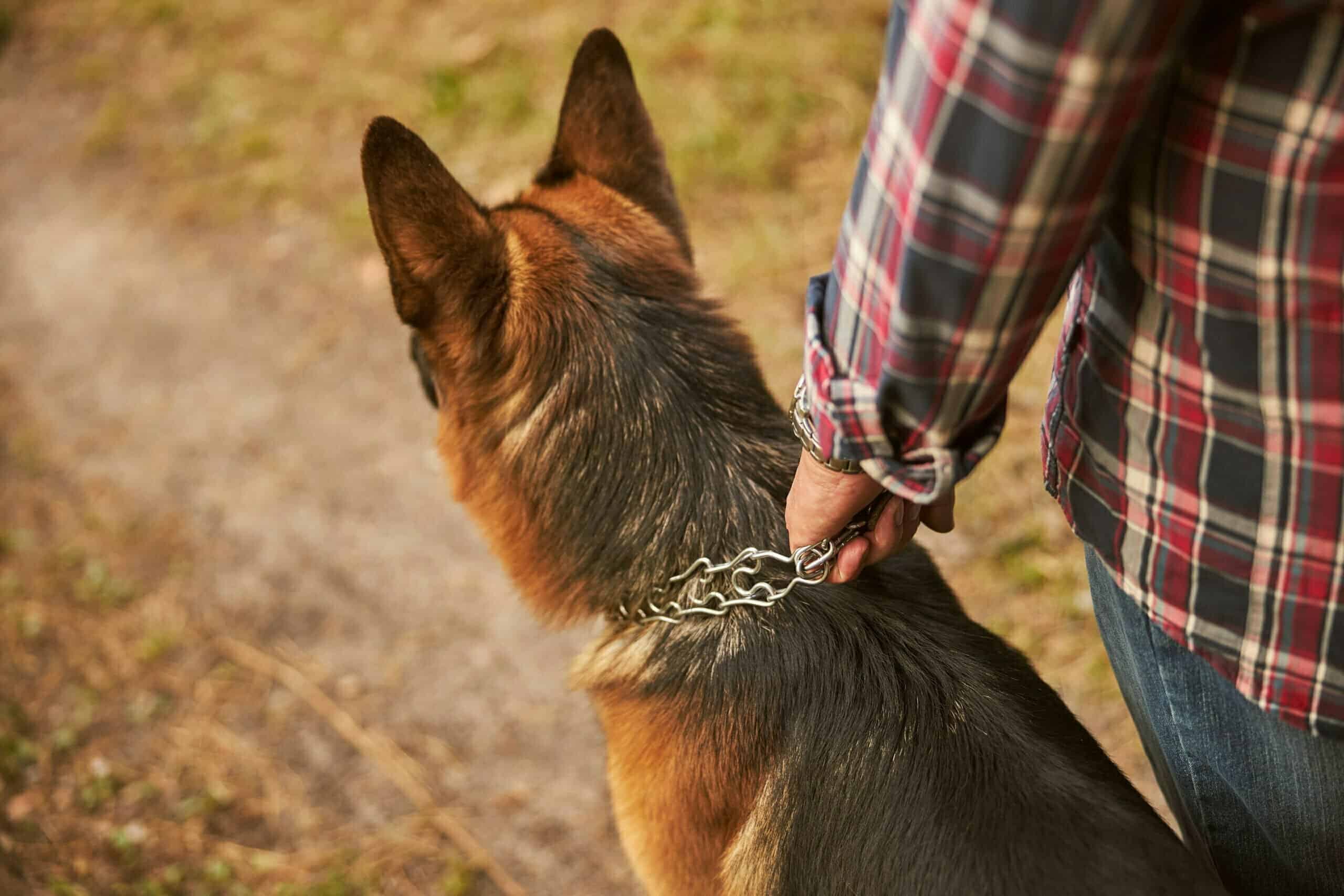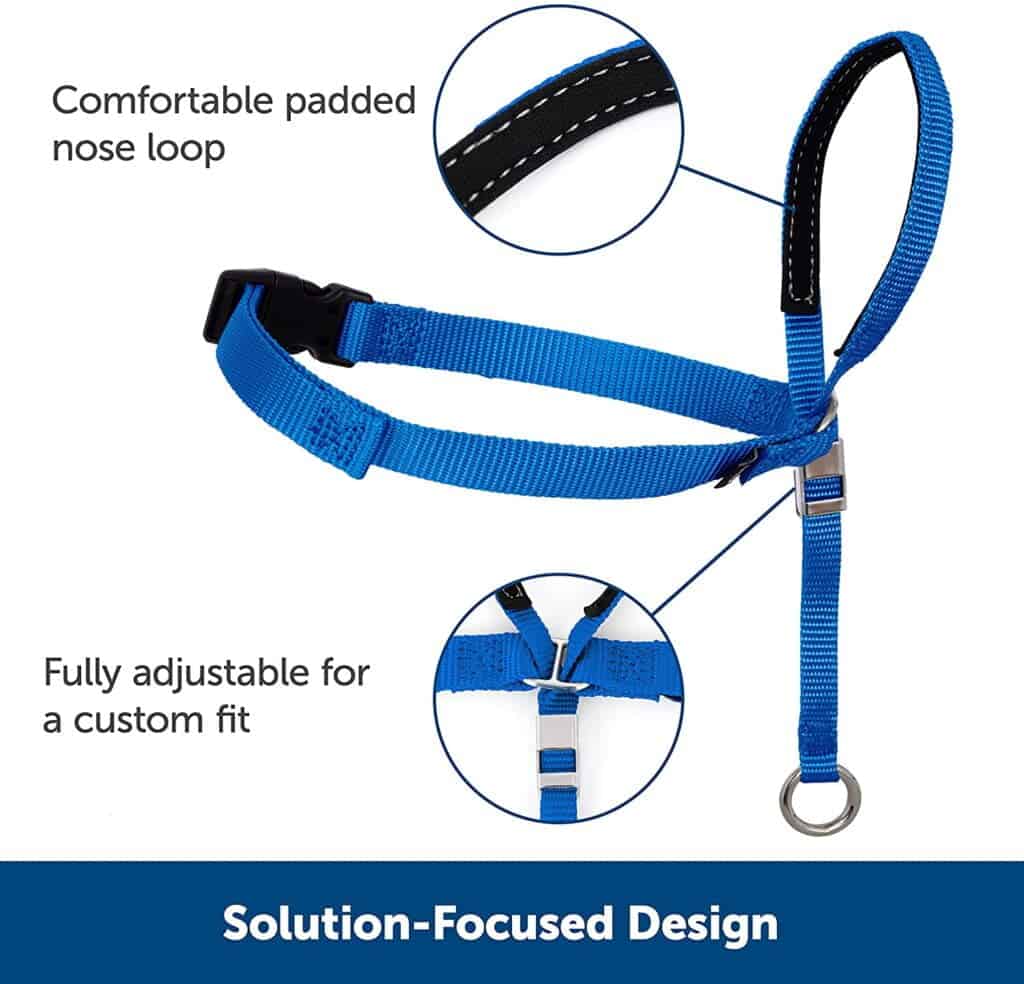
Dog prong collars have been gaining popularity in recent years as a training collar of choice for many dog owners. However, there is a growing body of evidence that suggests that these collars may actually be doing more harm than good.
Prong collars are designed to tighten around a dog’s neck when the animal pulls on the leash. This can cause the dog considerable discomfort and even pain, which is thought to be a deterrent to pulling behavior.
However, some studies have shown that dogs who wear prong collars are actually more likely to exhibit aggressive behaviors than those who do not wear them.
Table of contents
What does a prong collar simulate?
There are a number of theories as to why Dog prong collars make dogs aggressive. One possibility is that the pain caused by the collar triggers a fight-or-flight response in the dog, leading to an increase in aggressive behaviors.
Another possibility is that the constant wearing of a prong collar can itself lead to stress and anxiety in dogs, which can also lead to aggression.

If you’re considering using a prong collar on your dog, it’s important to weigh the potential risks and benefits carefully. You may want to consult with a professional trainer or behaviorist to see if there are other options that may be more effective for training your dog without causing undue stress or anxiety.
Do prong collars cause anxiety?
There is no definitive answer to this question, as every dog will react differently to the use of a prong collar. However, there is evidence to suggest that these collars may cause anxiety in some dogs, which can lead to increased aggression.
For example, a study conducted by the American Society for the Prevention of Cruelty to Animals (ASPCA) found that dogs who were trained with prong collars were more likely to show signs of anxiety and stress than those who were trained with other types of collars. In addition, numerous anecdotal reports from dog owners suggest that prong collars can cause dogs to become agitated and aggressive.
While more research is needed to confirm these findings, it is clear that prong collars are not suitable for all dogs. If you are considering using one of these collars on your dog, it is important to consult with a qualified trainer or behaviorist first to determine if it is the right choice for your pet.
What can I use instead of a prong collar?
If you’re concerned about the potential risks of using a prong collar on your dog, there are a number of alternative training collars that you can use instead
For example, head halters are designed to fit around a dog’s muzzle, giving you better control over the animal’s movements. Harnesses are also an option, though they may not be as effective in deterring pulling behavior as some other types of collars.
Whatever type of collar you choose, it’s important to use it properly and never to use it as a form of punishment. If used correctly, positive reinforcement techniques such as treats and praise can be very effective in training your dog without causing undue stress or anxiety.
So, how do I get my dog to stop pulling on a walk?
There are a number of different ways to train your dog not to pull on a leash, and the best method will vary depending on your individual pet. However, it is important to remember that all dogs require patience, consistency, and positive reinforcement to learn new behaviors.

Here are a few options for leash training your dog:
- Train with positive reinforcement: Rewarding your dog for good behavior is a great way to encourage them to continue displaying desired behaviors. This can be done with treats, verbal praise, or petting.
- Avoid using punishment: Punishing your dog for pulling on the leash will only make them more likely to display aggressive behaviors. Instead, focus on rewarding good behavior and consistently training your dog with positive reinforcement.
If you are having difficulty leash training your dog, consider seeking out the help of a professional trainer or behaviorist. They will be able to assess your individual pet and provide customized advice on the best way to train them.
Leash training takes time and patience, but it is possible to train your dog not to pull on a walk. The key is to find the method that works best for your pet and to be consistent with your training. With a little time and effort, you and your dog can enjoy stress-free walks together.
Final word
Overall, there is no definitive answer as to whether or not prong collars cause anxiety in dogs. However, there is some evidence to suggest that these collars may be more likely to cause anxiety than other types of collars. If you are considering using a prong collar on your dog, it is important to consult with a qualified trainer or behaviorist first to determine if it is the right choice for your pet. There are a number of alternative training collars that you can use instead, such as head halters or harnesses. With a little time and effort, you can find the right training method for your dog that will help them enjoy stress-free walks together.


